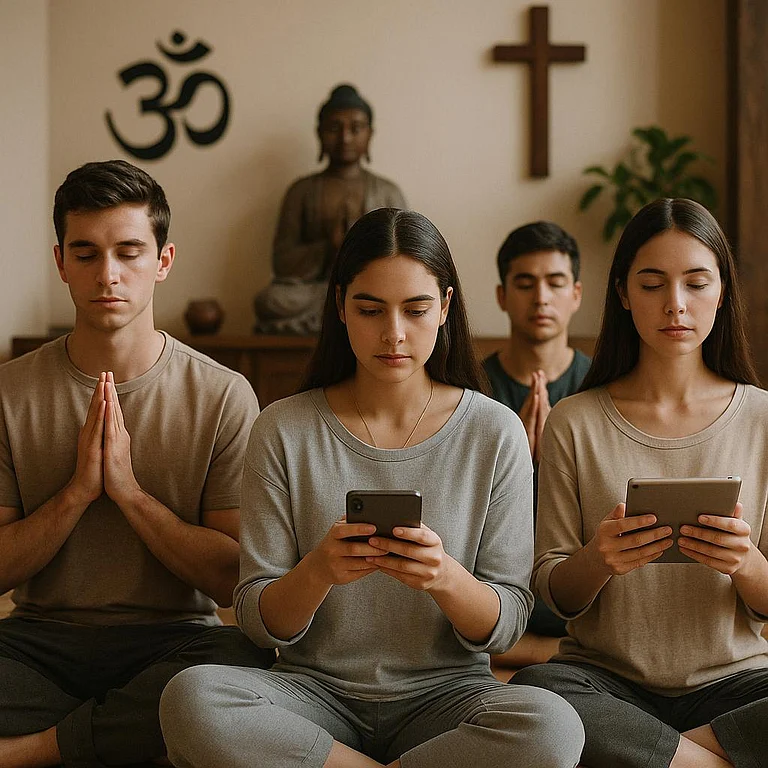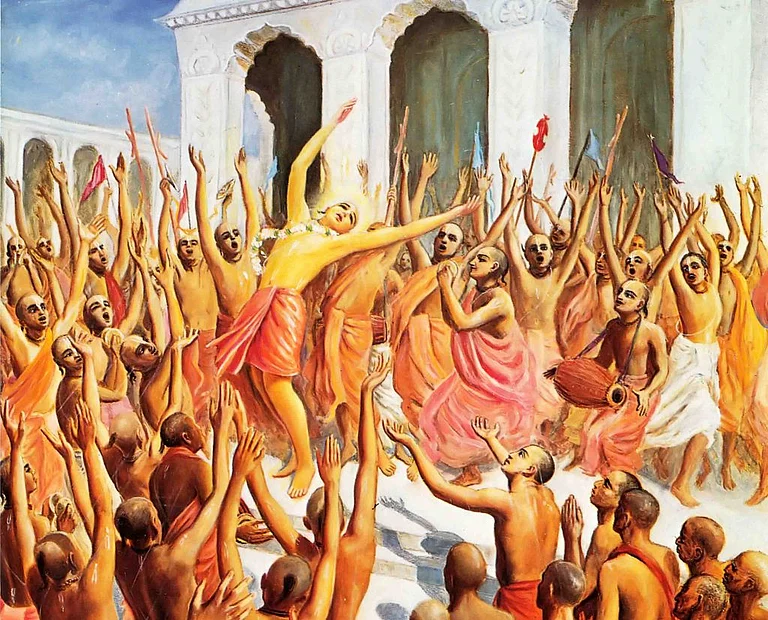Subramaniam’s poems reimagine ancient women mystics through a modern, spiritual lens.
The collection blends tradition and modernity, celebrating rebellion, self-discovery, and divine love.
Vivid imagery and lyrical finesse make this book a luminous ode to feminine mysticism and freedom.
Learning To Combust: A Review Of Arundhathi Subramaniam’s The Gallery of Upside Down Women
A remarkable collection that explores the ways in which the mystics of the past remain relevant to the challenges of the modern world
Arundhathi Subramaniam’s poetry has the finesse of an archer sporting a quiver of wondrous and magical arrows. The Gallery of Upside Down Women enchants by its vivid and intriguing title, and the poems gently light up the unexpected goals that spiritual seeking can choose. In the title section appears Karaikkal Ammaiyar, a sixth-century Tamil mystic, who literally undertook a pilgrimage to Lord Shiva’s abode by ‘walking’ on her hands, promising to put her feet down only when she arrived at her destination in the mountains. The depiction of such extreme hardship also encourages a metaphorical quest for the possible meanings of ‘upside down’. Subramaniam’s book is a remarkable tour de force for exploring the many ways in which the mystics of older times remain relevant to the challenges of the modern world.
The poem on Amrapali, 500 BCE, royal courtesan, patron, who joined the Buddhist sangha towards the end of her life, begins with the lines “One morning/you realise/the stairway to the cellar/will never be completed.” The refrain of the poem is ‘The Truth-Speaker’s word/doesn’t change.” Hence, one effect of the poem is to scramble chronology and experience and debunk the idea of the classical and the modern being separate categories. The upside-down consciousness is aware that perspective matters and everything is located in a subjective window. Other poems follow, of Yoginis who “never wear any heads” and the rebellious Akka Mahadevi, the naked mendicant. Subramaniam attributes poignant words to Mirabai, “Woo me I said/Blue me/… And since the best gods spill/like vegetable dye/…he indigoed me.’’
This assemblage of unconventional spiritualists may remind readers of Subramaniam’s earlier book, Wild Women: Seekers, Protagonists and Goddesses in Sacred Indian Poetry, an extraordinary compendium of poems by women and men, collected and translated superbly. The new book is different: the poet’s voice interprets the actions of the mystics, and suggests innovative linkages that may take one to the brink of self-discovery.

The Gallery of Upside Down Women has two other sections. The first one called ‘Cycling Hands Free on Air’ is remarkable for taking up contemporary issues in the context of ancestry and lineage. “What stories are left/when ancestors are in the bone, /the world on tap, /elsewhere on the phone screen?” A poem that tracks Kalidas’s Meghdoot and also a lover in Mumbai. and a guilty school girl from nowhere is a poem which is timeless in its implications. Though hard to express in words or to guess what the poet meant, such a spectrum of references point towards an infinity and a cosmic panorama in which human beings have an inconsequential place. Hence, spirituality introduces humility and a reverence for eternity. The ‘hands-free’ image appears to emphasise the futility of setting a direction, mundane targets or material acquisitions. As every mystic knows, transient possessions are merely shackles.
I might point here to Subramaniam’s stunning use of language, renditions, and collocations that catch the reader by surprise. Yet, through such phrases, a world of possibilities opens up. For example, the lines:
This is the vegetal hour—
time to listen
like a plant,
learning to combust
into an origami
of green
watchfulness…
Such vocabulary carries the thrill of the unexpected.
The final section of the volume is called ‘God’s Forgotten Nickname’ and the title poem refers to Sule Sankavva, 12th-century seeker and prostitute, who wrote poetry, addressed to Nirlajjeswhara, ‘The Shameless God’. The lineage of the rebels such as Mahadevi, Jana and Andal is recalled, yet the deity’s identity remains elusive. Sule, personalising her search decides upon a nickname ‘My God Without Shame’. Quite different in tone is Subramaniam’s soft elegy for the Urdu poet Tarannum Riyaz (1960-2021), who succumbed to Covid-19. Many of us in Delhi knew Riyaz and admired her talent and quiet grace. The poet enlarges her personal sorrow into a larger sense of loss as news poured in from around the world of people dying of the disease. Subramaniam’s grief finds touching words, ‘teach me what this means—/this intimate out-of-reachness,/…this oblivion /this repleteness,/this idolatry,/this incompleteness./…Where are they, the ones we love?’’
The diverse range of this book coheres under its eye-catching, unusual title, and splendid poetry. The awry and askew vision of the world is prioritised and a beautiful symphony rises from the medley of the unconventional. My favourite poem is called ‘When Two Women Drink Chai Together.’ It might appear as a simple enough activity, but imbued with the aromatic details of the star anise, cinnamon, and other magic potions gurgling in the kettle, the poem becomes a ritual with its special chant for the sisterhood: “The perfect number is always three—/a cackling duo and a pot of tea.” In this feminine partnership of relaxed chatter, the men are happily forgotten, so is the clutter of everyday lives. As I put down the book with this soothing image of a twosome and tea cups, I think back on the women who rebelled in earlier times, sometimes through physical penance, sometimes through secret language and sometimes through a mysticism coded beyond their time. The Gallery of Upside Down Women shows the eternal possibility of being the maverick and revelling in it, or discovering one’s true self by rejecting the social mask, or simply standing apart from a crowd and believing in a community of One.
Malashri Lal is an academic, poet, editor and anthologist. She has 25 books to her credit.
This story appeared as Learning to Combust in Outlook’s November 11 issue, titled "Caste is the Biggest Political Party in Bihar," which explores how caste plays multiple interconnected roles in seat-sharing and coalition-building in the land of the setting sun.

